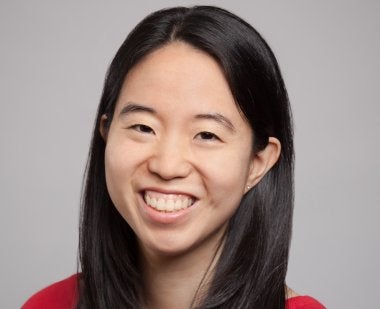
Dr. Julie J. Park Awarded $1.4 Million Grant from The Gates Foundation
Dr. Julie J. Park and a team of researchers were recently awarded a $1.4 million grant from the Bill and Melinda Gates Foundation to assess the impact of test-optional policies in college admissions.
Many higher education institutions have taken swift actions in altering their admissions process in response to the global COVID-19 pandemic. As such, some institutions have opted to either go test-optional or eliminate testing. While there is reason to believe that such changes will impact college access, there remain questions about whether or not these changes will facilitate equity for different student populations.
“This study is very timely and has key implications for society and inequality. Test-optional policies are becoming more common, however, there needs to be more research and data to inform decision making. There also needs to be more research on how inequality affects other parts of the college application, like extracurricular activities and letters of recommendation” said Dr. Park.
Park is the lead researcher on the study and will collaborate with Dr. OiYan Poon, Colorado State University, Dr. Kelly Rosinger, Penn State University, Dr. Dominique Baker, Southern Methodist University, and Brian Heseung Kim, a visiting Faculty Specialist at the University of Maryland.
“Our research team includes experts who have been studying test-optional admissions prior to this grant.”
The research team of Park, Poon, Rosinger, Baker, and Kim are award-winning research leaders in the study of college admissions, race, class, policy, and organizational practices and who have significant expertise in a range of quantitative and qualitative methods and research design.
“In our project, we are interested in learning about how and why admissions evaluation and decision-making policies and practices are changing, and their implications for race and class diversity in admission decisions,” said Dr. Poon. “Put simply, our study will help shed light on how race and class inequalities are produced in admissions practices. We hope that what we find will help inform and encourage transformative changes that improve race and class equity in college access.”
Much remains unknown about organizational exclusion, and barriers to college access. Together they will analyze data on enrollment patterns from about 150 four-year institutions included in the U.S. Department of Education’s Integrated Postsecondary Education Data System, as well as survey admissions professionals on the implementation of test-optional policies, and interview college admissions leaders.
Finally, they will use natural language processing artificial intelligence techniques to analyze a dataset of millions of college applications submitted in recent years to understand possible patterns of inequality related to extracurricular activities and letters of recommendation from counselors. In doing so, they will shed light on how bias and inequality might affect non-standardized components of college applications.
“This study is important because it provides a holistic research investigation focused on the ability of test-optional admissions policies to contribute to social justice,” said Dr. Baker. “ I’m excited to be able to contribute to a project that explores students’ responses to these policies, shifts in practices within admissions offices, and the ways that other elements of the admissions materials, such as letters of recommendation, likely still contain biases.”
At the end of this two-year study, the team hopes to gain a greater understanding of how test-optional policies impact equity and hope to identify recommendations on how college admission can be designed to advance equity. In achieving those two main objectives, the goal is to provide greater transparency to students and families about changes to the college admissions process.
“The goal of this study is to produce high-quality relevant research that looks at what happens after in admissions and to produce data that can influence policymaking,” said Dr. Park.
Dr. Julie J. Park is associate professor of education at the University of Maryland, College Park. Her research addresses racial equity in higher education, with a focus on the campus racial climate and college admissions.
Dr. OiYan Poon is a visiting Faculty Specialist at the University of Maryland and an Associate Professor Affiliate at the Colorado State University School of Education. Dr. Kelly Rosinger is an Assistant Professor of Education and Public Policy (by courtesy) and a Research Associate in the Center for the Study of Higher Education at Penn State University. Dr. Dominique Baker is an Assistant Professor of Education Policy in the Annette Caldwell Simmons School of Education and Human Development at Southern Methodist University. Brian Heseung Kim is a visiting Faculty Specialist at the University of Maryland and a Data Scientist at the Common Application.



